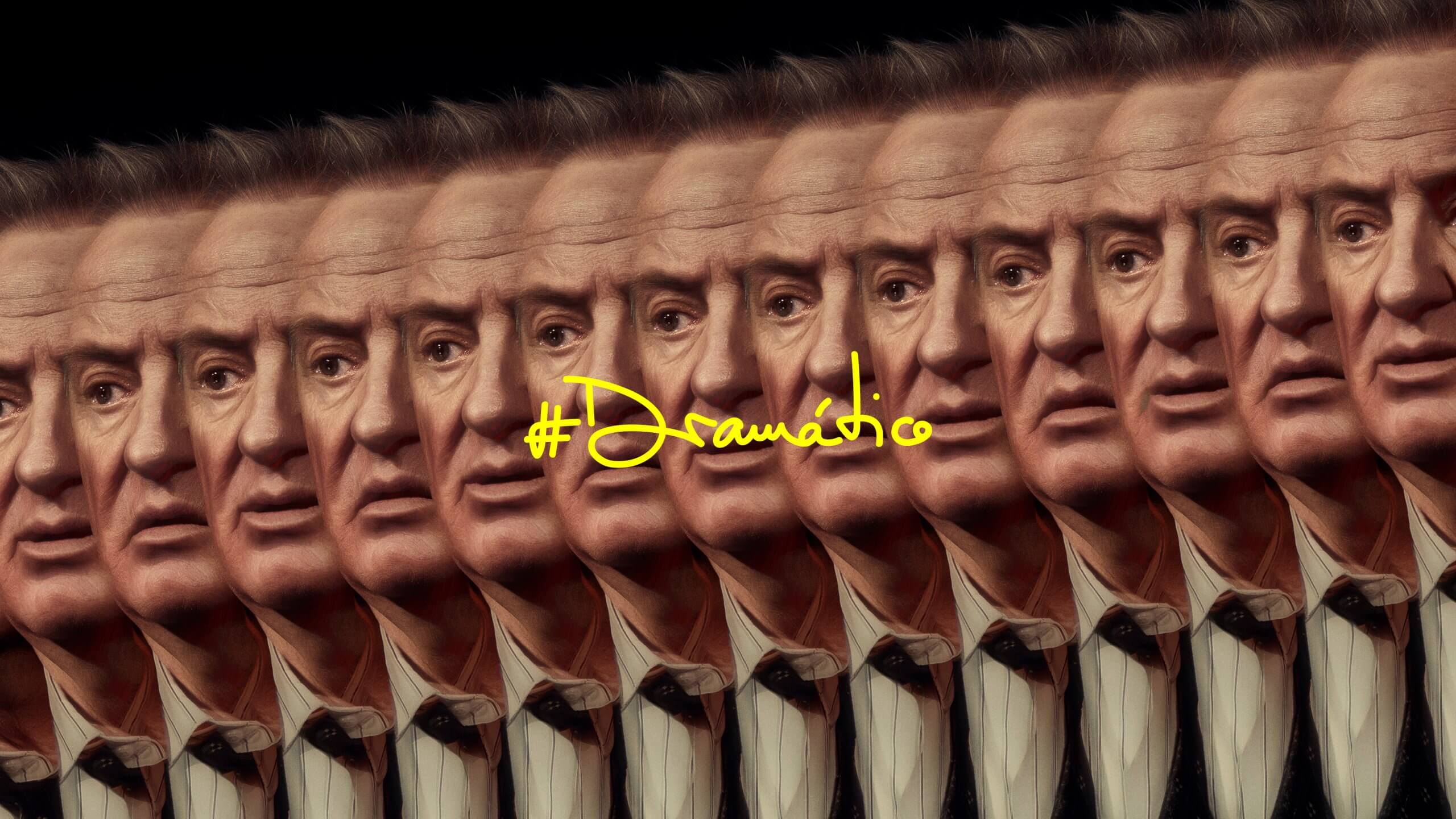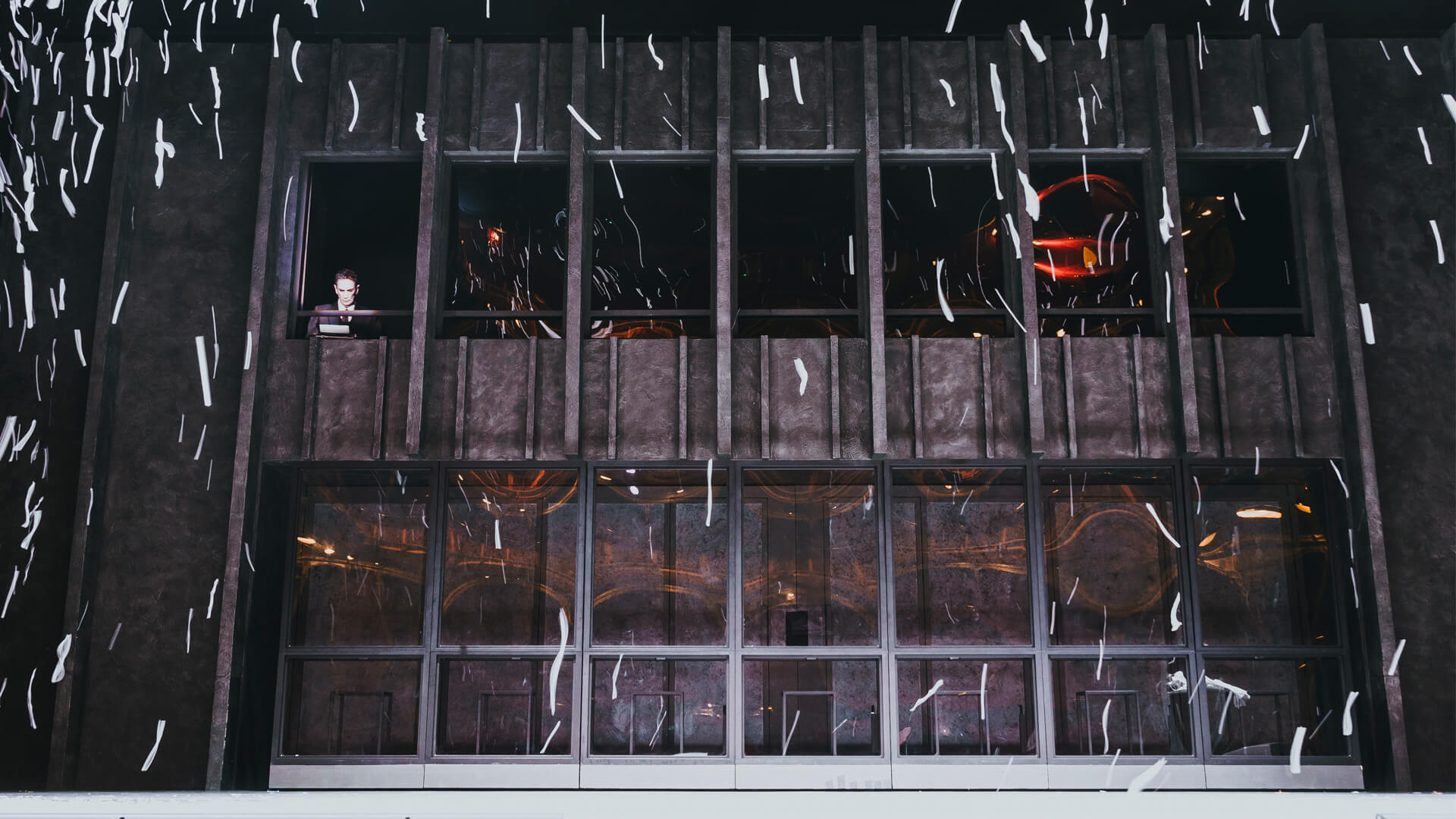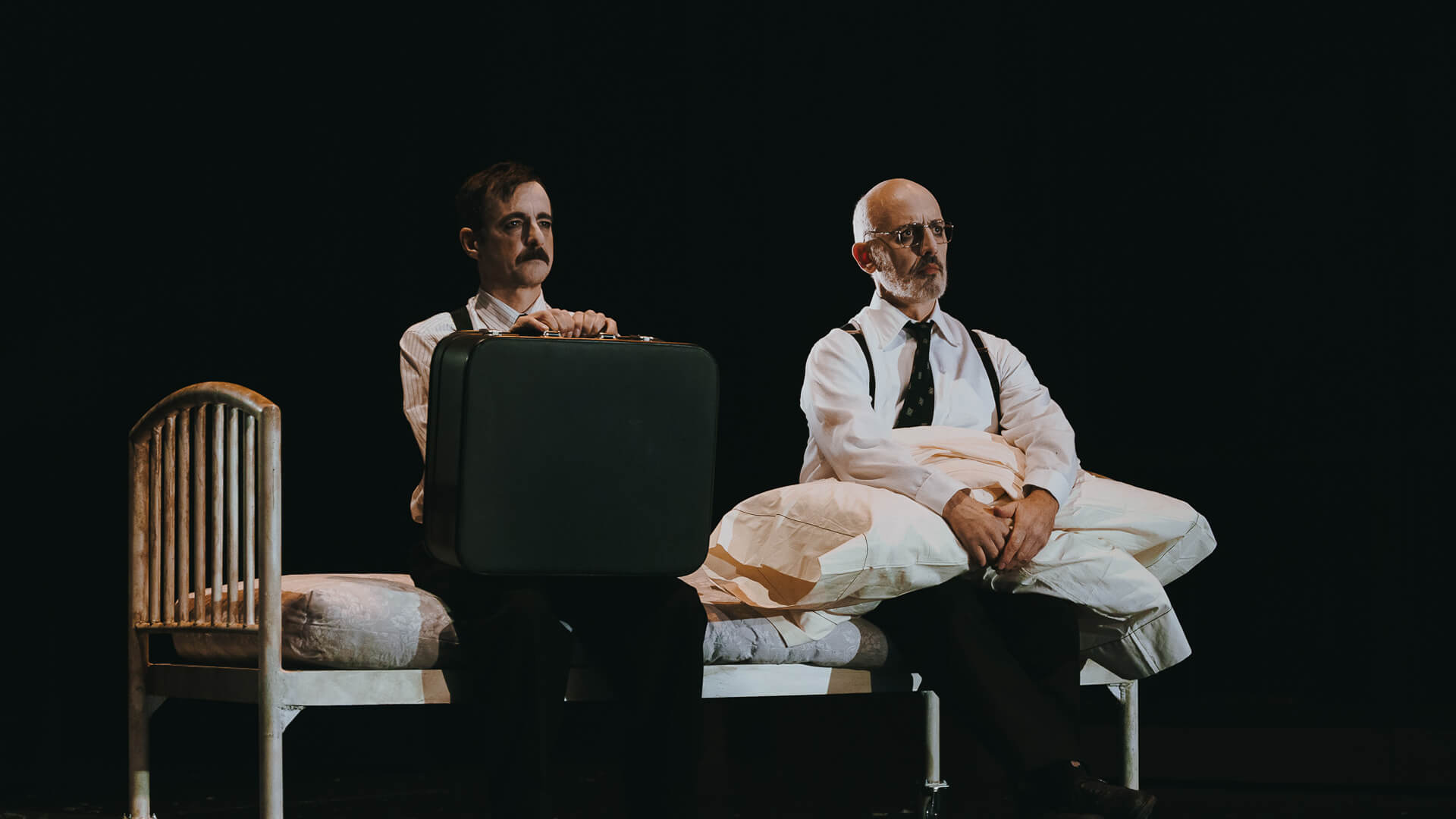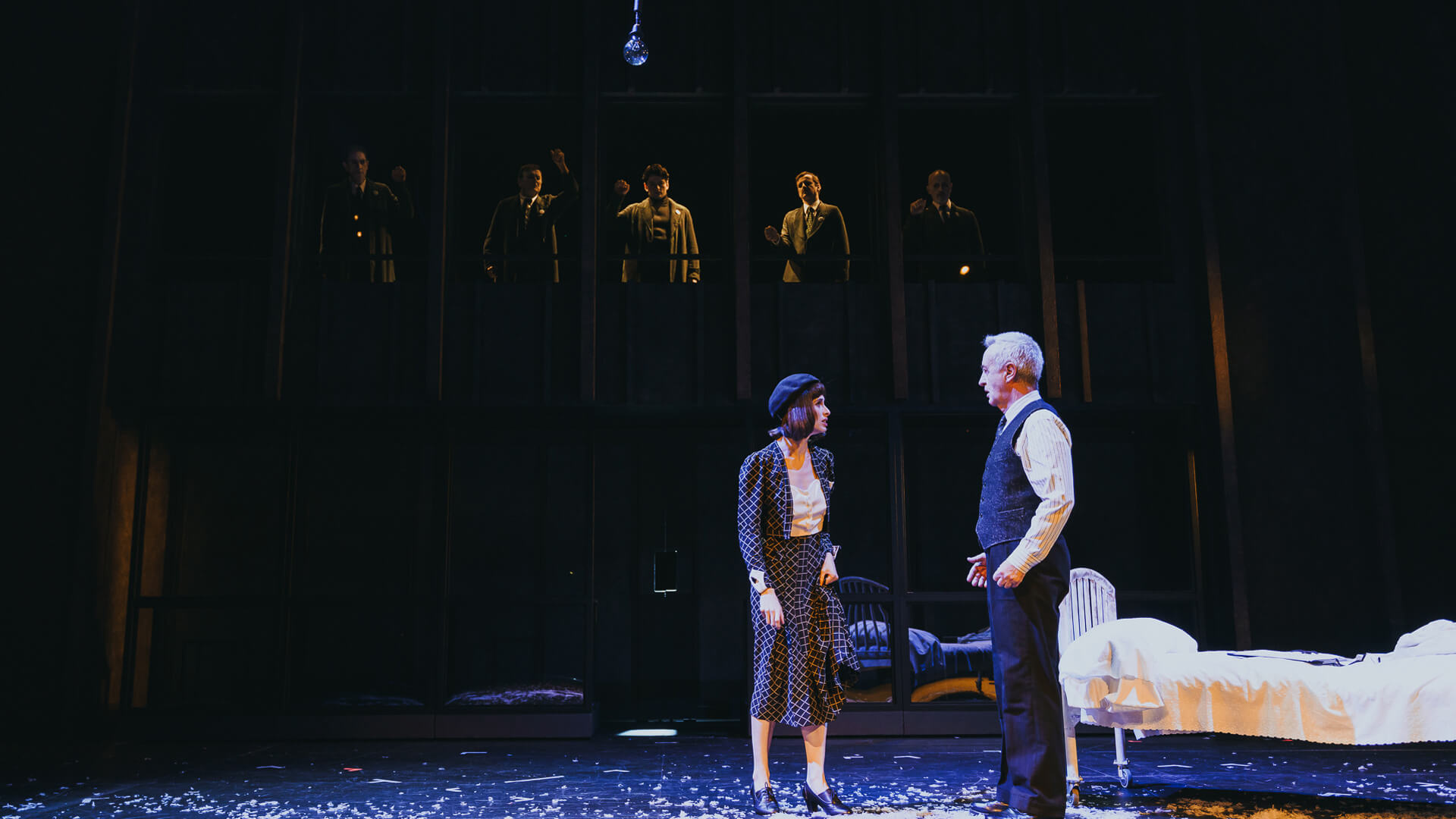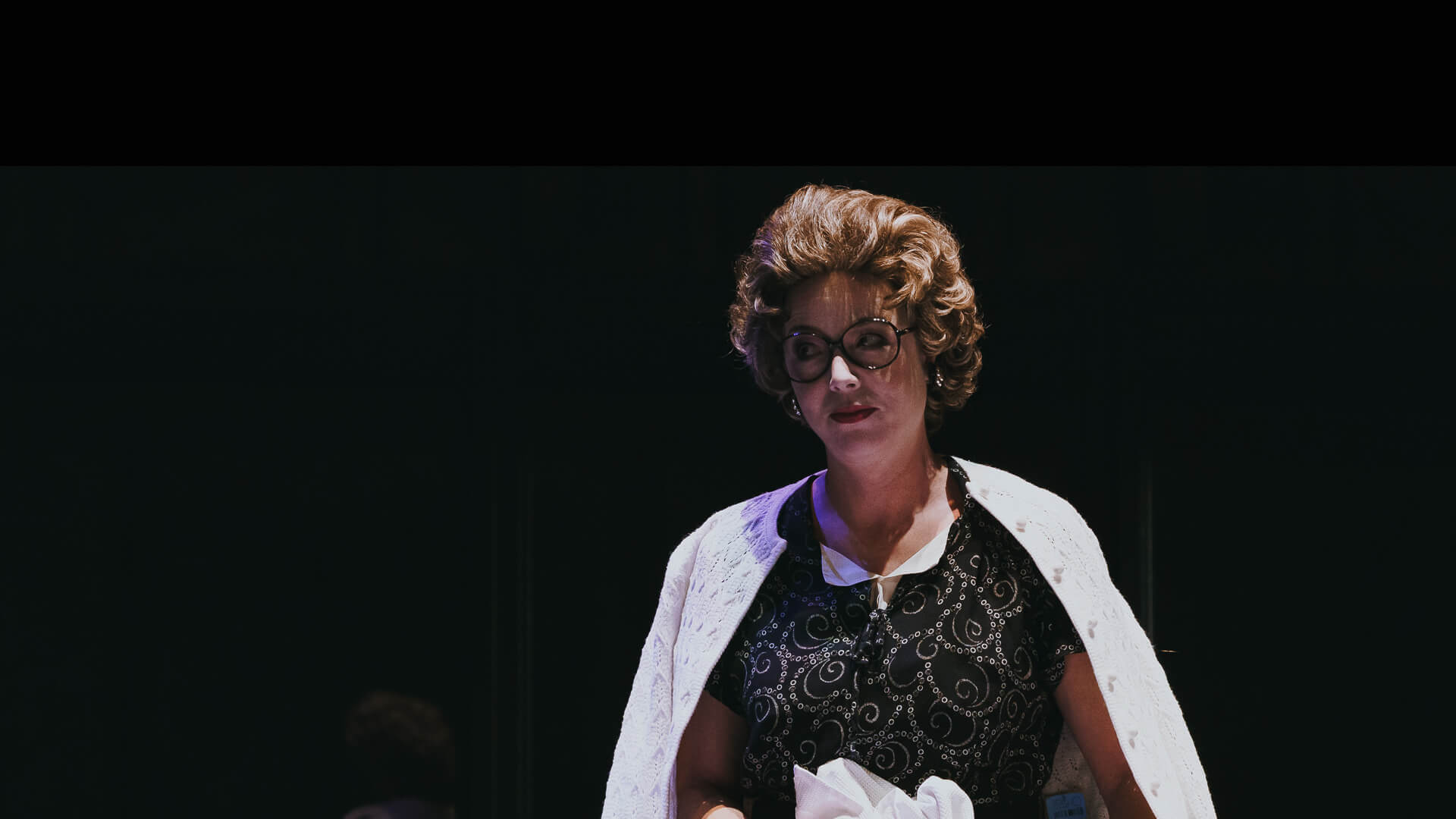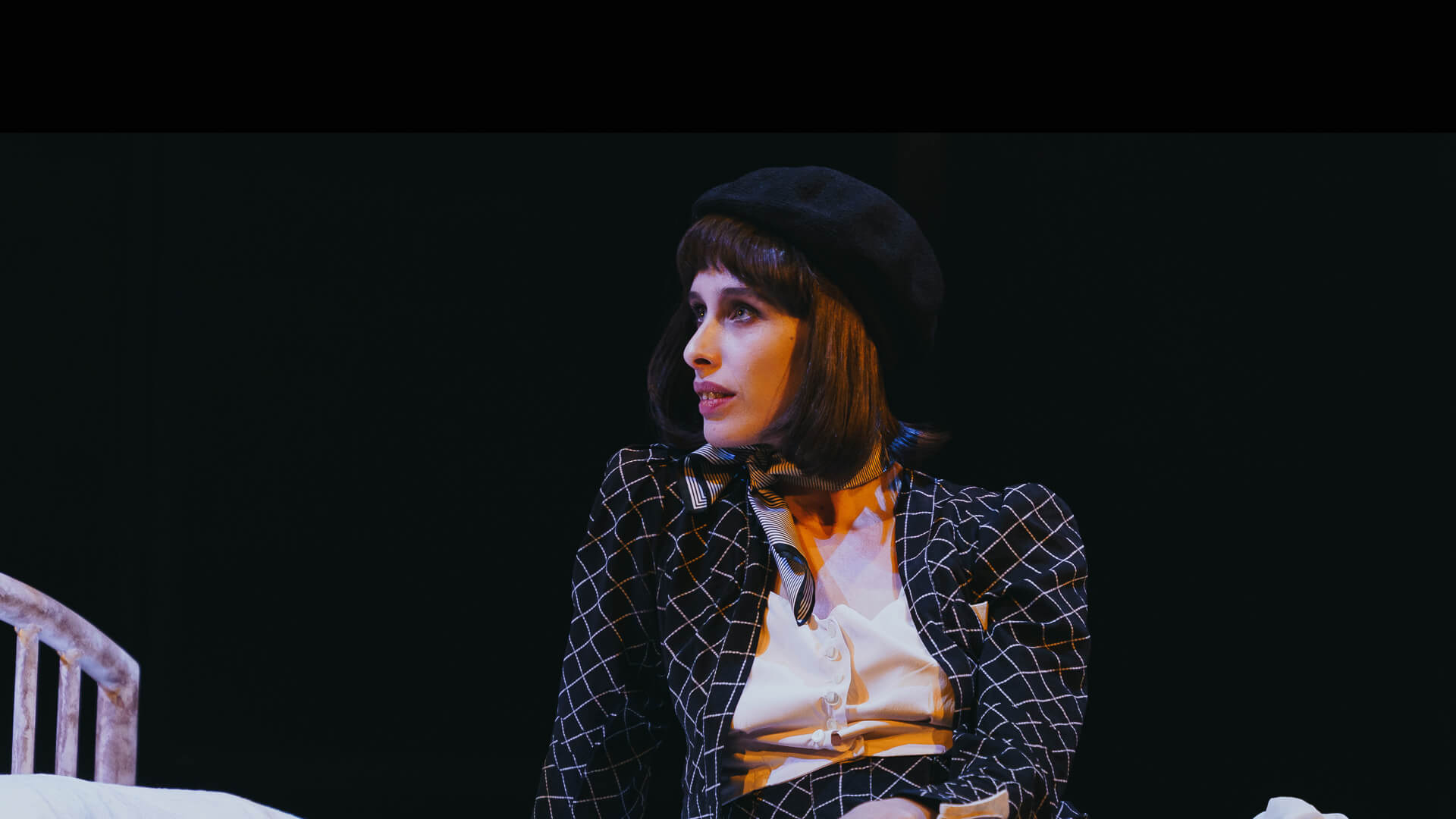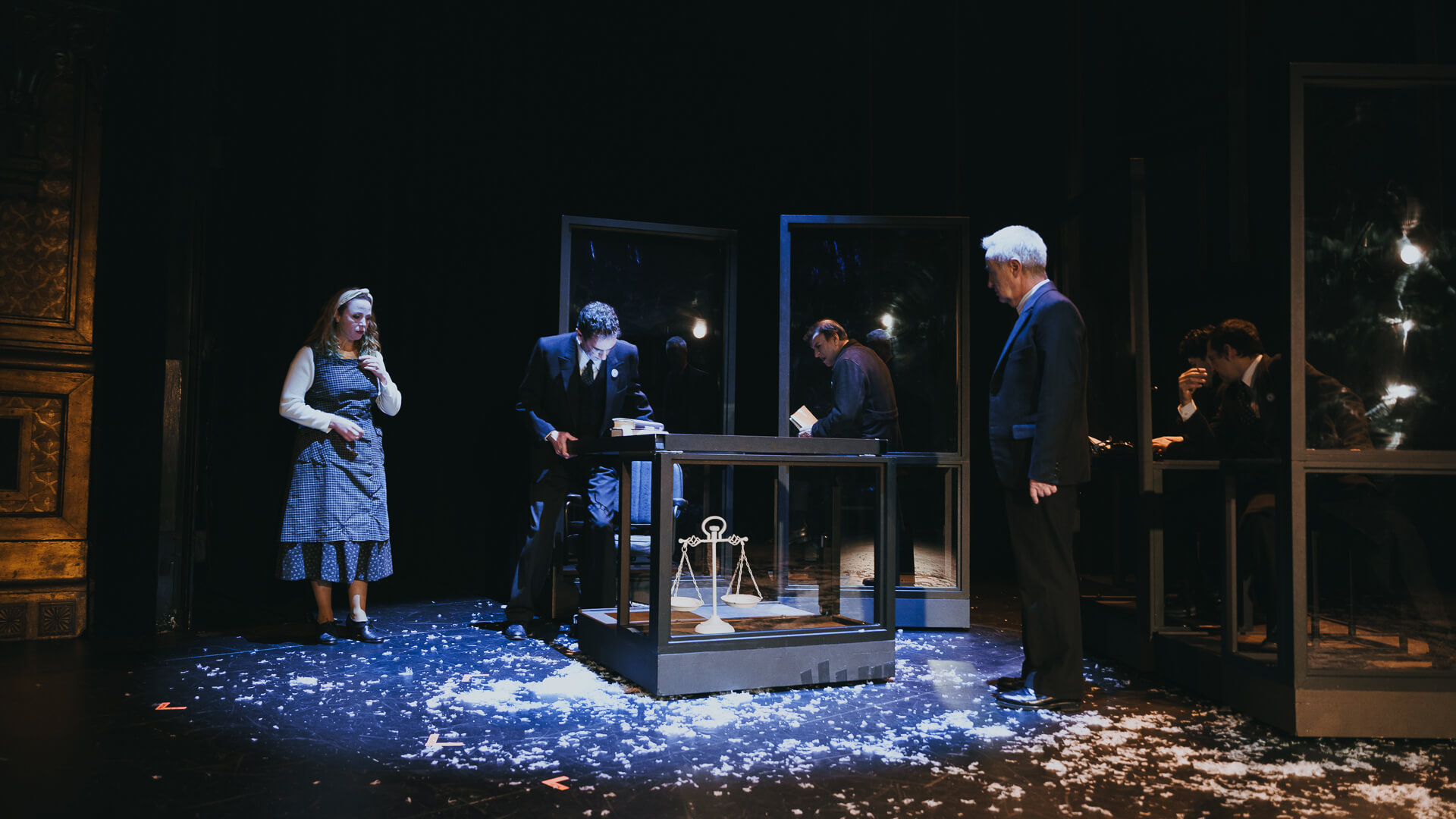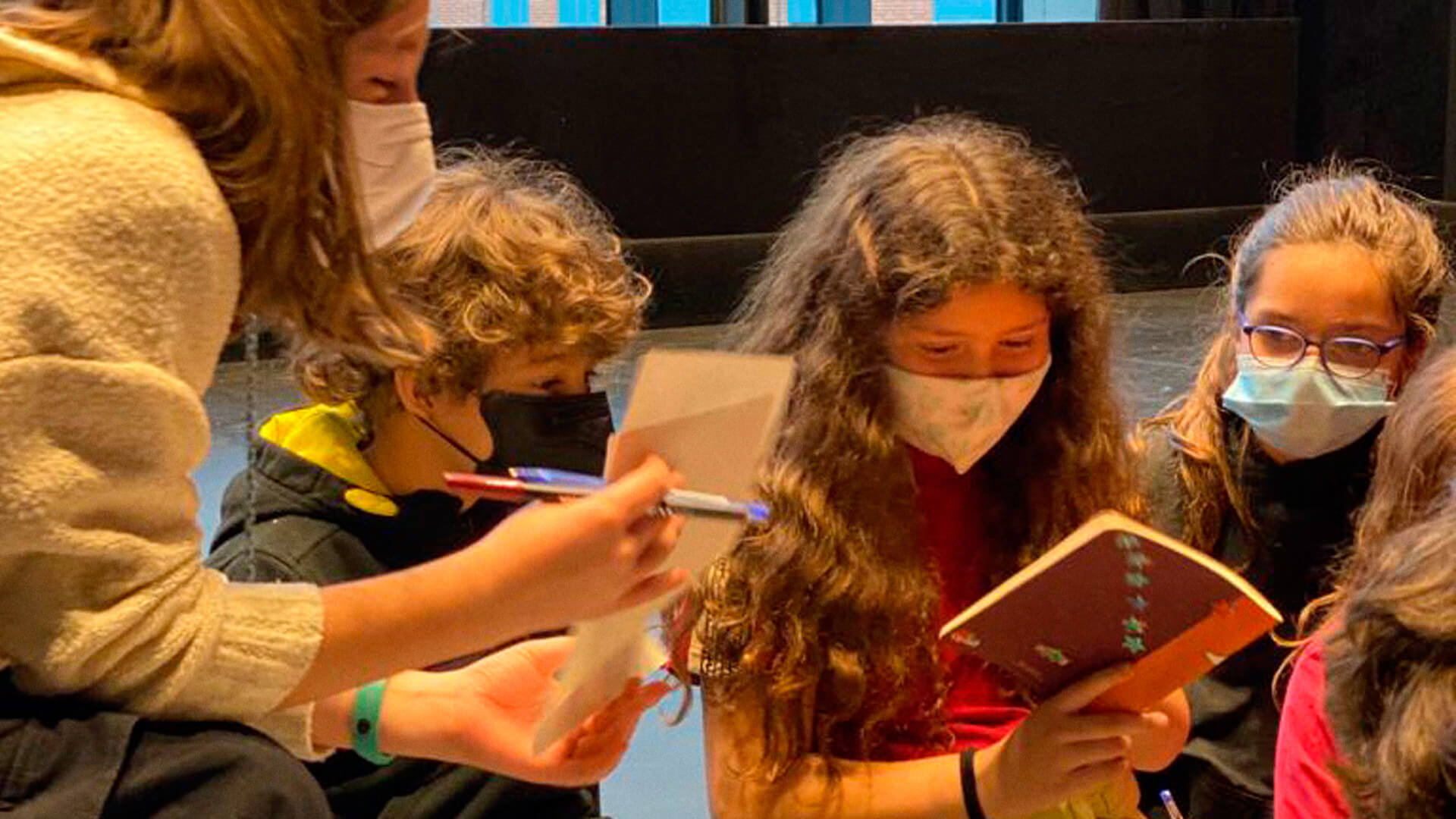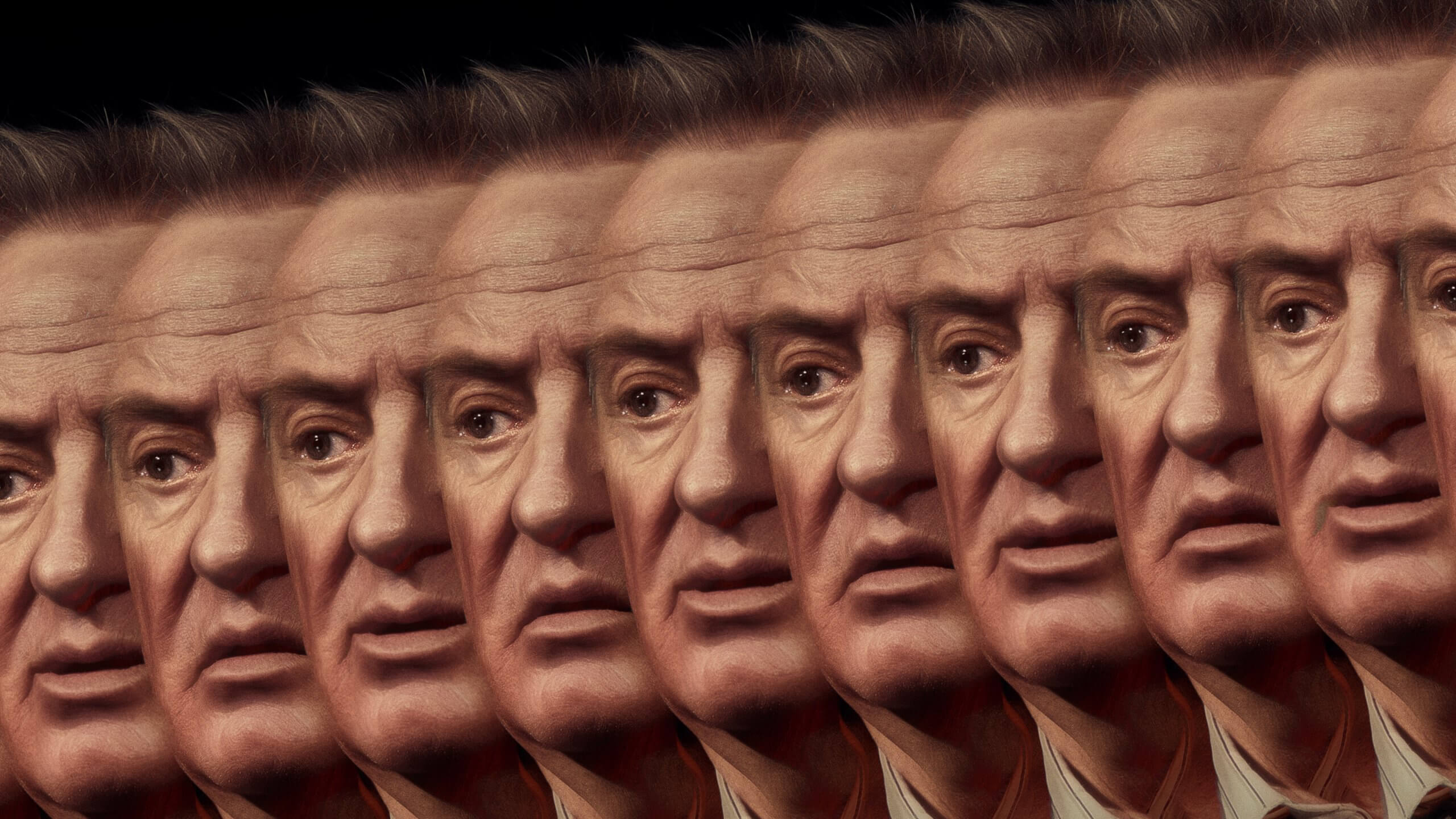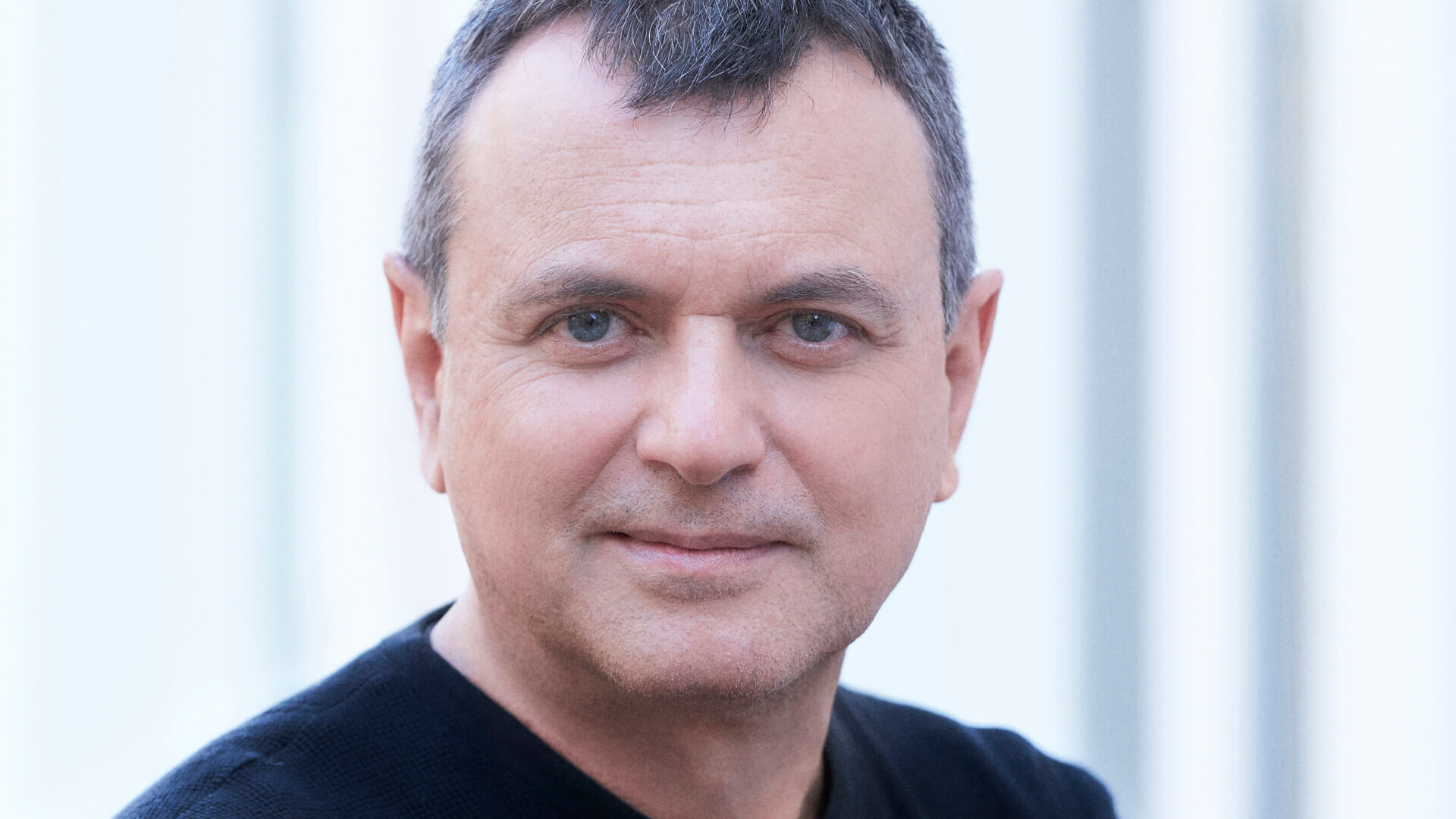Version and direction
Ernesto Caballero
Cast
Felipe Ansola (Estudiante, Azotador, Fabricante), Olivia Baglivi (Señora Bürstner, Leni, Niña Titorelli 1), Jorge Basanta (Willem, Huld), Carlos Hipólito (Josef K.), Alberto Jiménez (Franz, El pintor Titorelli, El capellán de la prisión), Paco Ochoa (Juez instructor, Hombre alto, El tío Albert, Block), Ainhoa Santamaría (Señora Grubach, Mujer del juzgado, Niña Titorelli 2), Juan Carlos Talavera (Inspector, Ujier, Jefe de departamento)
Set designer
Mónica Boromello
Lighting
Paco Ariza
Costume
Anna Tusell
Original music
José María Sánchez-Verdú
Sound space
Miguel Agramonte
Characterization
Sara Álvarez
movement
José Luis Sendarrubias
Photography
Luz Soria
Vídeo
Bárbara Sánchez Palomero
co-production
Centro Dramático Nacional y Lantia Escénica


